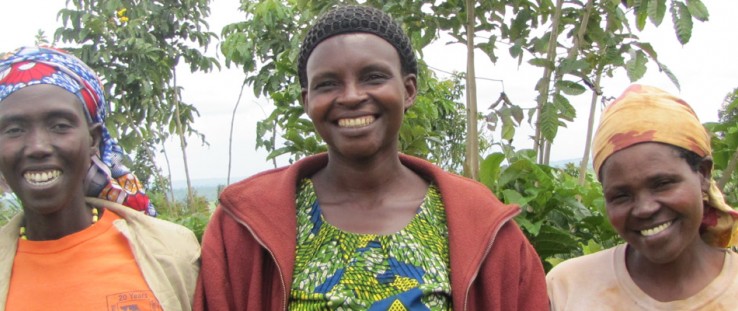 Annociate Musabwamana, center, stands with two farmers she trained under Sell More For More.
Portia Allen, CARANA Corp.
Annociate Musabwamana, center, stands with two farmers she trained under Sell More For More.
Portia Allen, CARANA Corp.
 Annociate Musabwamana, center, stands with two farmers she trained under Sell More For More.
Portia Allen, CARANA Corp.
Annociate Musabwamana, center, stands with two farmers she trained under Sell More For More.
Portia Allen, CARANA Corp.
A year and a half ago, Annociate Musabwamana of eastern Rwanda was struggling to earn a living with a small plot of land. The meager 50 kilograms of maize she harvested each season was not enough. She faced hard times, wondering how to feed her four children and pay for basic needs.
Then, along with other members of her cooperative, Let Us Develop Ourselves, Musabwamana joined the Sell More For More (SMFM) training program through a project that links producers of staple crops like beans and maize to markets. The project is funded by USAID in support of Feed the Future, the U.S. Government’s global hunger and food security initiative.
“Before the SMFM trainings, I was not yielding a profit from the crops I was growing. Having learned post-harvest handling techniques through the trainings, I am now harvesting around 300 kilograms of maize and making some profit,” said Musabwamana, who is vice president of the 120-member cooperative—76 of whom are women.
USAID launched the market-oriented trainings to help Rwandan farmer organizations improve farming techniques and build business plans. Like the name says, they “sell more” high-quality products “for more” revenue.
Results have been striking. In 2012, SMFM won a Best Practice and Innovation Award from the International Fund for Agricultural Development and InterAction for creating new tools and curriculum that teach farmers how to succeed in a demanding marketplace and maintain a competitive edge.
That same year, USAID conducted a household survey that showed that 93 percent of trained farmers reported increased incomes because of improved threshing techniques, controlled storage facilities and reliable transportation options as a result of the support.
Since the trainings began, farmers have reported average post-harvest losses at less than 5 percent, down from an average of 20 percent before joining SMFM. This significant decrease in lost crops means farmers now have more to sell and are consistently able to bring in a larger income.
Training with a Twist
Eighty percent of Rwandans rely on agriculture for their livelihoods. Given this concentration of small-scale farming, with its tight profit margins, food security is a constant concern.
The biannual harvests become critical events. Smallholder farmers like Musabwamana can lose a significant amount of their beans and maize—often at least 25 percent—when they harvest at the wrong time or due to improper post-harvest storage and handling.
In addition to the loss of crops, prices paid for what remains suffer if goods show signs of discoloration, rot or insect infestation. These losses and defects reduce a farmer’s income and buying power, and can negatively affect family health and nutrition. A primary goal of the SMFM training program is to improve food security by improving quality and reducing loss.
Over 100 cooperatives and nearly 60,000 farmers have been trained through the program. Its six modules—leadership, marketing, business planning, recordkeeping, post-harvest handling and warehouse management—may sound familiar. However, the training is not typical.
First, it is deliberately paced. The 17 days of training is spread out over four months, usually in two- to three-day sessions. Participants meet at their cooperative’s headquarters to go over one module at a time, returning home after each lesson to absorb and apply their learning. Trainers and trainees continue to meet throughout the production cycle until all modules have been completed.
Second, it is interactive. Dull speeches and long PowerPoint presentations have been tossed out under the project’s 5/25 rule: for every 5 minutes of direct lecture, 25 minutes are spent on group activities exploring new ideas and creating action plans based on farmers’ experiences.
Evariste Tugirinshuti, president of the Bright Future cooperative, said that his fellow members were fully engaged in the training. “I was particularly pleased with the cooperative leadership development [course] we completed.”
SMFM also ensures women are included in all aspects of the program since they typically manage the post-harvest processing. And so far, 45 percent of the participants in SMFM training have been women.
SMFM also uses training tools like STICKS, which stands for Scalable Tracker for Imparting Certified Knowledge and Skills, and is a portable 20 x 11 inch banner printed on durable plastic material that includes illustrations depicting the desired harvesting, processing, drying and storage skills in action. It can be written on, so it serves as a record keeper.
SMFM lead farmers, who are committed to training an additional 30 farmers, use the photos and illustrations on the front to communicate new farming skills. Trainees sign the back after completion of the course. And trainers proudly hang STICKS in their cooperative’s office as a record of accomplishment.
Leading by Example
Musabwamana is a lead farmer. She and over 1,700 other lead farmers have focused on learning 10 new farming skills, ranging from harvest timing to proper storage, and also participate in role-play activities during training sessions to practice teaching these skills to others.
The results have already produced some successes, including dramatic improvements in drying grain, testing for moisture and sorting for quality. Before, members faced challenges relating to quality management, food safety and other public health standards. Now, they are more knowledgeable about the quality standards demanded by formal markets, and have adopted better post-harvest handling practices.
Rwanda is widely recognized for having promulgated farmer-friendly development plans, and established an effective institutional framework to support the agricultural sector, all of which have been supported by Feed the Future. It has also allocated 10 percent of the national budget to agriculture in compliance with the Africa Union’s Comprehensive African Agriculture Development Program.
In 2011, the World Bank reported that the Rwandan agricultural sector grew at an impressive average rate of 4.9 percent a year over the last five years. With ongoing efforts to develop capacity, these successes can improve economic growth and food security.
Along with strengthening farmers individually, trainings such as those supported by Feed the Future empower cooperatives collectively. Participating cooperatives now share resources, including storage centers and post-harvest handling equipment. The SMFM program has helped them write and manage contracts, and some are now asking that purchasing contracts be written in Kinyarwanda, their local language. The cooperatives have also started researching price information prior to negotiating contracts.
Farmers Link to New Markets
In 2011, 80 percent of SMFM-trained cooperatives successfully sold their maize to the World Food Program (WFP), which demands high-quality products. This also meant their harvests would be subject to inspection by the Rwanda Bureau of Standards. By contrast, only 47 percent of maize acquired from other sources met WFP standards.
“We have seen marked improvement in the quality of the maize being produced, as well as in the leadership capacity of the cooperatives’ management,” said WFP’s Purchase for Progress coordinator Emmanuela Mashayo. “We are now able to purchase with confidence from those cooperatives that have undergone this training.”
Cooperatives have been able to strike deals with conventional buyers, creating formal purchasing agreements that have increased their access to bank credit. This combination of SMFM training and market linkages continues to boost demand for the training in Rwanda and generate income for rural farmers like Musabwamana.
Like other farmers trained through SMFM, Musabwamana has graduated to the formal marketplace where, through her cooperative, she is enjoying direct relationships with buyers, control over her prices and higher profits. The extra income is freeing up money for health care, education, investment in a small-scale business and access to credit. There is even some left over for savings.
When Musabwamana and other farmers she had trained were asked if her new skills were benefitting their families, all of them loudly replied: “Yes!”
William Sparks and Portia Allen are with implementing partners ACDI/VOCA and CARANA Corp., respectively.







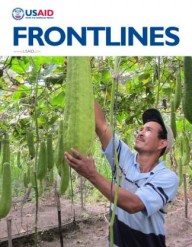

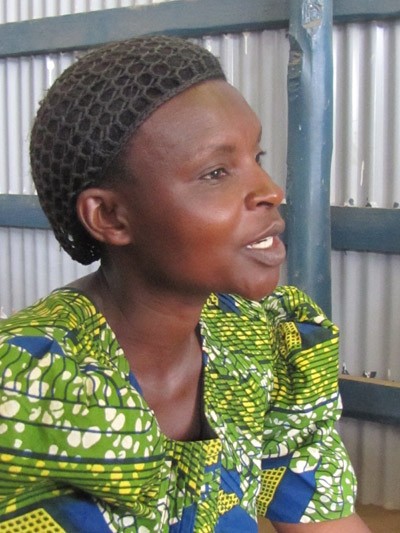
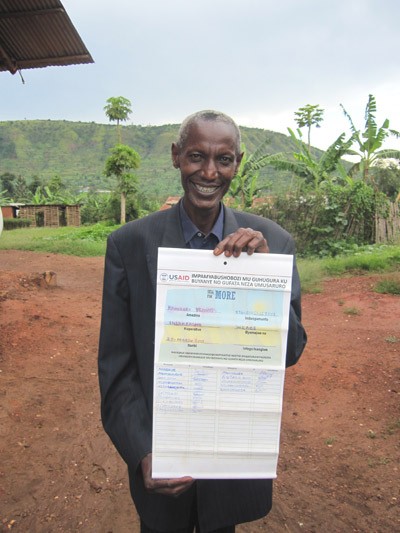
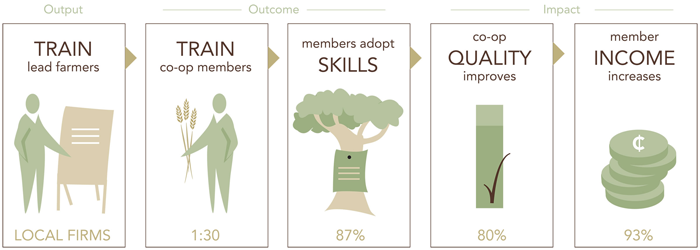
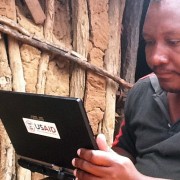
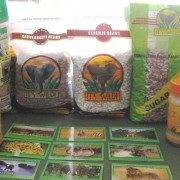
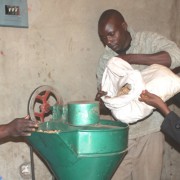
Comment
Make a general inquiry or suggest an improvement.